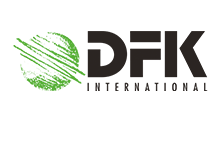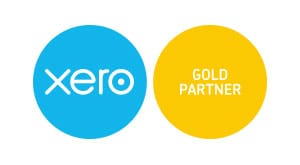Following last night’s Government announcement, the offices of Royce Peeling Green in Manchester and St. Asaph will be closed and all staff will be working from home. Nothing is more important to us than the health and safety of our clients, contacts and colleagues.
Arrangements have been made for any calls made to the main switchboard or direct lines to be diverted and they will then reach the relevant person. Emails will still be received and responded to in a timely fashion. Although we are remote working, you should not experience any change to the service you receive. Please be assured that this does not impact on the confidential nature of our work and data protection remains paramount. We are here to help and are dedicating all our efforts to helping you through this difficult time. Please do not hesitate to ring any of us at any time.
Stay safe and healthy during these difficult and unprecedented times.
A summary of the current support for businesses, the self-employed and the employees announced by the government is below. If you have any questions on any of the support available please do contact your usual RPG contact.
Overnight some welcome support was proposed for the self-employed and freelancers but confirmation of this support is still to be published.
Self Employed
The government have announced proposals to ‘top up’ self-employed earnings to the lower of 80% of their net monthly earning’s over three years, or £2,917 a month. This is much needed to support for freelancers and the self-employed. It is not yet clear how this support will be rolled out but full details will be provided as soon as it is available.
Income tax payments on account for all self-employed individuals due under Self-Assessment on 31 July 2020 will be deferred until 31 January 2021. This is an automatic measure and no action is required by any individual. No interest or penalties will be charged for non-payment of the July payment on account. It is anticipated that this measure will also apply to partners of a partnership.
Coronavirus job retention scheme
The job retention scheme will be available to all employers, businesses, charity or not for profit organisations in the UK irrespective of the size of the business.
The scheme requires employees to be furloughed instead of being made redundant and the employee must not do any other work for the employer during the furloughed period.
A grant will be paid to cover up to 80% of salary costs of anyone not working due to Coronavirus but whose job has been retained. The grant is capped at a maximum of £2,500 per month per employee. The grant can be backdated to 1st March 2020, anyone made redundant since that date can be reinstated and furloughed instead of being made redundant. The government has announced that it hopes the first grants will be paid within weeks with the scheme in place before the end of April.
Grants will be provided by HMRC but the exact details of how these will be paid have not yet been announced.
Business Interruption Loan Scheme
Any business that needs access to cash will be able to apply for government-backed and guaranteed loans. The Business interruption loans announced in the budget of £1.2m has been increased to £5m, with no interest due for the first twelve months, and will now be made available to all small and medium sized businesses.
The business loan scheme will be delivered by the British Business Bank. Businesses will access the loans via their high street bank requesting a government backed business interruption loan. It has been confirmed that the scheme is now open.
The scheme provides the lender with a government-backed guarantee against 80% of the outstanding facility balance, potentially enabling a negative credit decision from a lender to become a positive. However, despite the government guarantee, the borrower will always remain 100% liable for the debt.
To be eligible for a business interruption loan you must:
- Be UK based, with turnover of no more than £45 million per annum (this has been increased from £41m originally announced).
- Operate within an eligible industrial sector (a small number of industrial sectors are not eligible for support)
- Have a sound borrowing proposal but have inadequate security to meet a lender’s normal requirements
- Be up to date in respect of any accounts and tax filings due (even if tax is not necessarily fully paid)
- Be able to confirm that you have not received other public support of de minimis state aid beyond €200,000 equivalent over the previous three years
The Covid Corporate Financing Facility (“CCFF”)
Support is available for companies that are too large for the business interruption loan scheme. The facility will offer financing on terms comparable to what was prevailing in the markets before the impact of Covid-19. To be eligible for the scheme firms must have a suitable short term credit rating from an approved source on 1st March 2020. The 1st March date has been chosen as this is before any Covid -19 issues could have had an impact. This scheme has now been confirmed as open.
Business Rates Support
A cash grant from the government of £25,000 will be made available to businesses in the retail, hospitality and leisure sectors who have a rateable value of less than £51,000, the business rates holidays will be extended to all firms in these sectors. Guidance on the business rates holiday will be published to local authorities on 20th March. Eligibility for the £25,000 grant should be directed to your local authority.
The £3,000 grant announced in the budget for businesses that qualify for small business rate reliefs or rural rates relief has been increased to £10,000. This will be administered by the local authority and eligible companies will be contacted directly and do not need to apply for this. This funding will be available from early April.
VAT payment deferral
VAT payments due from businesses between 20 March 2020 and the end of June 2020 will be deferred.
No VAT registered business will have to make a VAT payment normally due with their VAT return to HMRC in this period. This is an automatic relief and no action is required to claim the deferral. Payment of VAT will be deferred to the end of the tax year.
HMRC has not yet issued detailed guidance on how the tax year will be defined -the tax year for VAT typically runs to the end of 31 March, 30 April or 31 May (depending on the VAT return periods of an individual business). Therefore, our assumption is that VAT payments for the period from 20 March 2020 to 30 June 2020 will be deferred until the VAT return periods ending 31 March, 30 April or 31 May 2021 depending on the VAT return periods of each business deferring payments.
Although no VAT liabilities will be payable up to the end of June 2020, VAT returns must still be submitted to HMRC. HMRC have confirmed that any VAT refunds due will continue to be paid during this period.
Help with paying tax liabilities
A dedicated helpline has been set up to help businesses and self-employed individuals in financial distress and with outstanding tax liabilities to receive support with their tax affairs.
HMRC is offering a three month payment holiday for PAYE, Duty and Corporation tax where cash flow is being impacted by Covid-19. Any deferral over and above this 3 month period will require a more formal time to pay agreement with HMRC. HMRC have confirmed that they will only be the lender of last resort, so all other funding options must have been exhausted before a time to pay arrangement will be agreed.
The number to call is 0800 0159 559. It is expected that this line will be busy at all times so it is recommended that any calls are made well in advance of the normal due date of payment. Our experience is that the same HMRC Officer is not able to deal with all taxes and as such callers are being passed between departments to defer the payment of each tax. Calls can, therefore, take longer than anticipated.
Statutory Sick Pay
HMRC is bringing forward legislation to allow small and medium sized businesses and employers to reclaim Statutory Sick Pay (SSP) paid for sickness absence due to Coronavirus. You will be able to claim 2 weeks SSP for each employee what has been off work because of the Coronavirus. In order to be eligible for the changes to statutory sick pay, you must employ less than 250 people (as at 28th February 2020), keep records of the employees absence and payments of SSP but the employee will not need to provide a doctor’s note.
Additional Support
One further measure announced to support the self-employed and sub-contractor community was a delay to the introduction of the IR35 legislation for the private sector. This was due to come in to force from April 2020 but this has now been delayed until April 2021. It is hoped that the delay to the introduction of this legislation will provide much needed assistance to sub-contractors at this time.
Insurance cover for business losses
As Covid-19 has been designated a ‘notifiable disease’ this could now trigger certain insurance policies. Everyone’s policy will be different and each policy holder will need to check their policy wording carefully to see if they are eligible for a claim as the Association of British Insurers has said that insurance for business interruption resulting from COVID-19 is likely to be rare.
New announcements are being made daily so it is likely that additional support will become available in the days and weeks ahead.








 Production
Production
